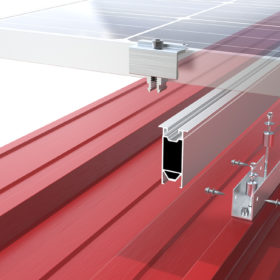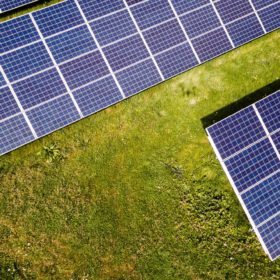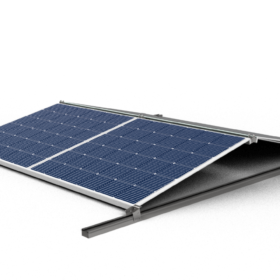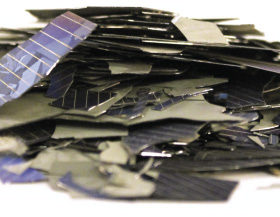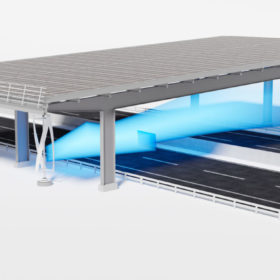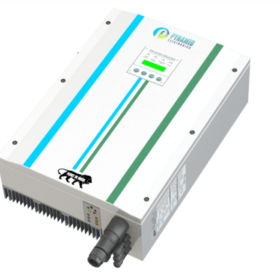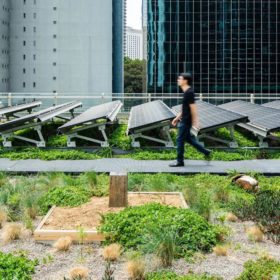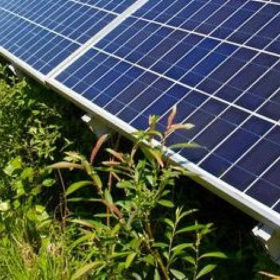New mounting system for rooftop PV, from Austria
The mounting structure relies on a 5.8m long support rail that does not lie on the roof but is connected directly to a purlin placed below with self-drilling support screws.
SECI seeks land for agriculture feeder-level solar power plants
The Solar Energy Corporation of India Limited (SECI) has invited Expression of Interest to identify the applicants who are interested in leasing or selling their land to developers for setting up agricultural feeder-level solar power plants in the State.
Solar module for east-west installations on flat rooftops
Dutch startup Solarge has developed a 500 W panel that weighs 50% less than conventional glass-backsheet modules. The new product can be fixed to rooftops with roofing anchors, which eliminates the need for ballast, according to the manufacturer.
New solar addition may generate 21 kilotonnes of PV module waste by 2030
India’s solar capacity growth up to 2030 also means the generation of a significant mass of PV module waste due to early failures or damages during transportation, installation, and operation. The waste generation could be 21 kilotonnes assuming India’s cumulative installed PV capacity grows to 287.4 GW by 2030 from 40 GW in 2020. This doesn’t include end-of-life panel waste as PV systems installed between 2020-30 are assumed to have at least 30 years of lifetime.
Hybrid wind-solar for highways
Switzerland-based Energy Pier has developed a new concept for hybrid-wind solar projects located along highways. The proposed solution combines a rooftop PV system with small scale wind generators that are installed on both sides of the supporting pillars of the system.
UK to invest $1.2 billion in green energy projects in India
UK’s development finance institution CDC will invest $1 billion in green projects in India between 2022-26. Besides, UK has committed a new $200-million private and multilateral investment into the joint UK-India Green Growth Equity Fund that invests in Indian renewable energy.
String solar inverters from Indian manufacturer
Pyramid Electronics has unveiled three-phase string solar inverters based on silicon carbide power devices. The inverters are available in power ratings ranging from 5 kW to 15 kW, including models with three maximum power point trackers.
India added 2,110 MW of solar in April-May-June period
Despite rising module prices and lockdown restrictions, the nation maintained its quarterly solar capacity installation above the 2 GW level in the second quarter.
Green roof improves solar panel efficiency by 3.6% on average
The comparison of two solar cladded roofs in Sydney, Australia, one bare beneath its panels and the other adorned with native grasses and plants, has found the panels on the green roof were, on average, 3.63% more efficient, producing an average daily output 13% greater than the conventional roof. The improvements are believed to stem from the lower temperatures on the green roof, thanks to its plants – which also provided a plethora of additional benefits.
Cooling PV modules with plants, coir pith
An Indian-Malaysian research group has investigated the effectiveness of several passive cooling techniques for solar panels, including the placement of plants around the modules or coir pith underneath them, both of which, surprisingly, offered good performance in terms of temperature reduction and power yield.
